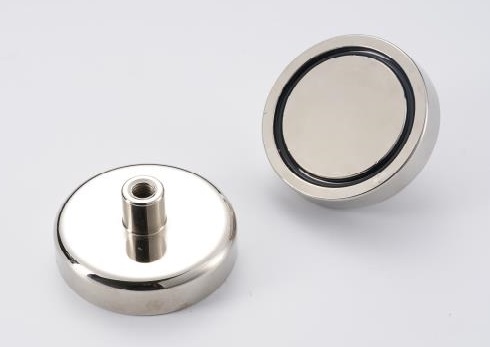As technology continues to advance, it is no surprise that the medical field has been greatly influenced by these advancements. Magnetic technology, in particular, has become an invaluable tool in medical devices and equipment. From MRI machines to implantable medical devices, magnets have revolutionized the way healthcare is delivered. One specific type of magnet that has gained significant attention in recent years is Teflon coated magnets. In this blog, we will explore the brand BeiLun Meank and how their Teflon coated magnets have transformed the medical industry.
Teflon coated magnets, as the name suggests, are magnets that are coated with a thin layer of Teflon material. Teflon, known for its non-stick properties, provides several advantages when used in medical applications. The first and foremost advantage is its biocompatibility. Teflon is highly resistant to chemical reactions, making it safe for use in the human body. This makes Teflon coated magnets ideal for medical implants, such as pacemakers and cochlear implants, where the magnet is in direct contact with bodily tissues.
BeiLun Meank, a renowned brand in the field of magnetic technology, has played a pivotal role in introducing Teflon coated magnets to the medical industry. With their extensive research and development, BeiLun Meank has successfully created magnets that are not only highly effective but also safe for medical applications. Their Teflon coated magnets have been widely adopted by medical device manufacturers, hospitals, and research institutions around the world.
The introduction of Teflon coated magnets has revolutionized the design and functionality of various medical devices. MRI machines, for example, rely heavily on strong magnets to create detailed images of the body. By using Teflon coated magnets, the risk of damage or corrosion due to the presence of bodily fluids is significantly reduced. This ensures the longevity and accuracy of these vital imaging devices.
Furthermore, Teflon coated magnets have also improved the performance of implantable medical devices. In the past, the interaction between bodily fluids and the magnets used in implants often resulted in inflammation and rejection by the body. With the implementation of Teflon coated magnets, the risk of these complications is greatly minimized. Patients can now benefit from the enhanced functionality and longer lifespan of implantable medical devices.
As the demand for more advanced medical technology increases, the role of Teflon coated magnets will continue to expand. Researchers and engineers are constantly exploring new ways to leverage the unique properties of Teflon to further enhance the safety and effectiveness of medical devices. From improved magnetic resonance imaging to more sophisticated implantable devices, the possibilities are endless.
In conclusion, Teflon coated magnets, such as those developed by BeiLun Meank, have truly transformed the medical industry. They have revolutionized the design and functionality of medical devices, ensuring better patient outcomes and improved healthcare delivery. With ongoing advancements in magnetic technology, we can look forward to even more exciting innovations in the field of medical technology in the future.





